The following student researchers were interviewed and profiled by journalism student, Hannah Snider, during the 2022-23 and 2023-24 academic years.
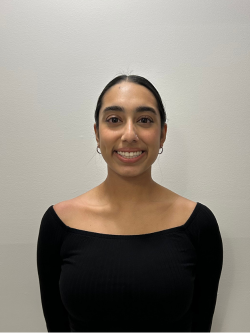
Anmol Singh began her time at Langara studying biology before transferring into bioinformatics. Bioinformatics is an interdisciplinary field that develops computational methods and software tools for understanding biological data, particularly when data sets are large and complex. It uses biology, chemistry, physics, computer science, and information engineering to analyze and interpret biological data.
Singh started working for the Applied Research Centre (ARC) when her biology professor, Dr. Ido Hatam, asked if she would be interested in helping with his research. Her work with ARC contributed to the early stages of the project. Singh says, “I was the researcher. I was in charge of researching which algorithms we would use, what the best way to go about things was, and created standard operating procedures.”
Singh says her time with ARC was a rewarding experience, because it was an opportunity for her to begin working on a project that was pioneering at that time, and there were daily updates on how the project was evolving.
After graduating, Singh wants to pursue a career in the healthcare system, and specifically on bridging the gap between the current healthcare system and the Southeast Asian community – helping overcome language, cultural, and other barriers.
Singh strongly suggests that students interested in working with ARC reach out to their instructors about any opportunities available. She happened to be one of three students in her class, which facilitated her entry into ARC. However, if a student is one of thirty it would be more difficult to be noticed, so one should not hesitate to ask the instructor about working with ARC.
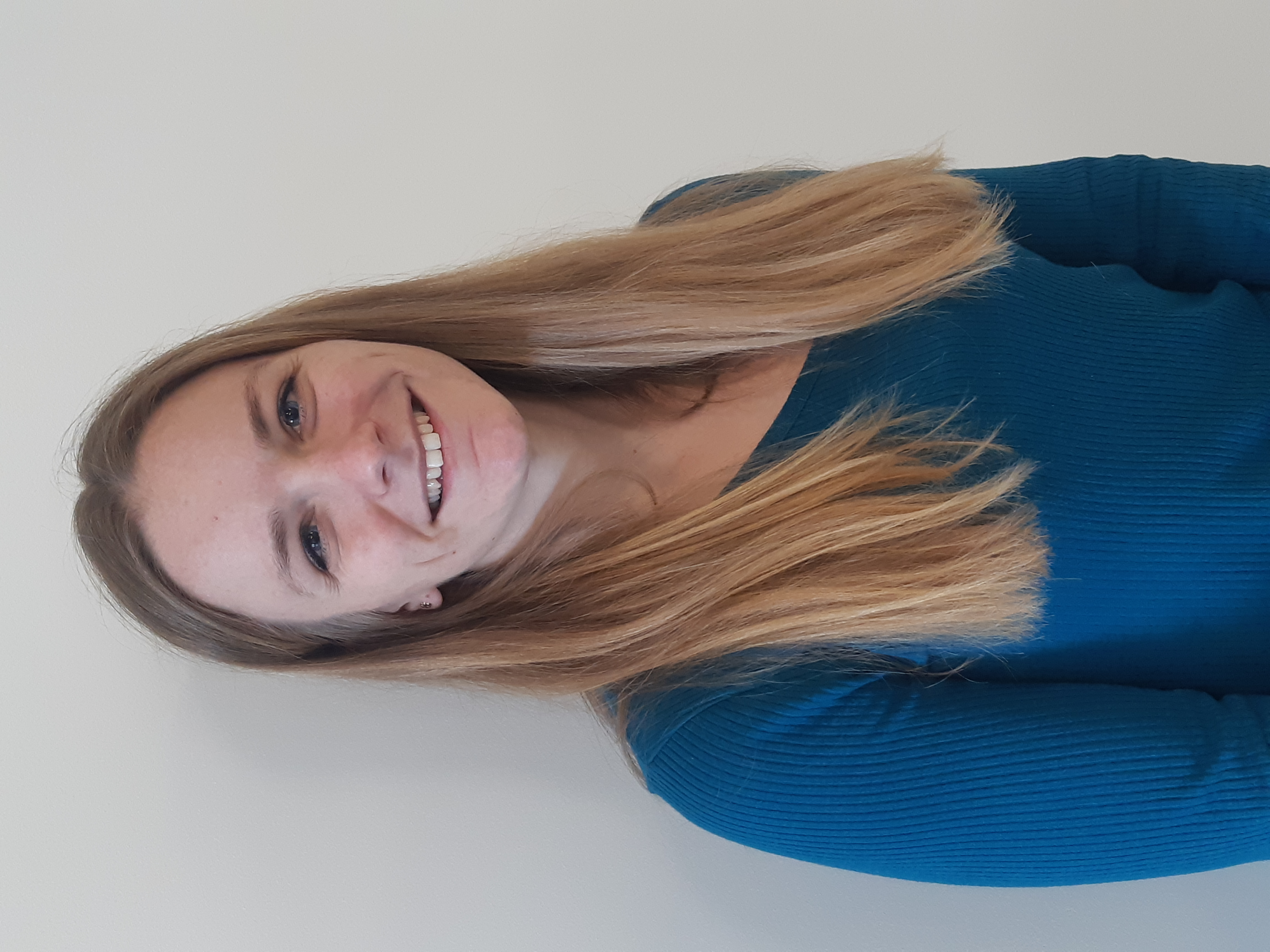 Almost two years ago, Anja Duminy traveled from Cape Town, South Africa to pursue an associate of arts degree at Langara College. She had previously obtained a bachelor of science in human life sciences with a major in physiology and a minor in genetics. Duminy also attended the University of the Western Cape and was an honours student in biomedical science with a research project on Cape honey bee spermatology.
Almost two years ago, Anja Duminy traveled from Cape Town, South Africa to pursue an associate of arts degree at Langara College. She had previously obtained a bachelor of science in human life sciences with a major in physiology and a minor in genetics. Duminy also attended the University of the Western Cape and was an honours student in biomedical science with a research project on Cape honey bee spermatology.
With her solid science background, Duminy wanted to broaden her worldview and thinking by pursuing a non-scientific field of study at Langara. When she expressed interest in working in the biology department to instructor Dr. Ido Hatam, he introduced her to Dr. Ji Yong Yang and his project on the commercialization of feral hops from British Columbia.
As of September 2022, Duminy and the hops research team, under the leadership of Dr. Yang, have been making steady progress in propagation methods of feral hops, focusing on tissue culturing, and investigating methods of eliminating viruses, viroids and fungal pathogens from hop plants. Duminy says that the research team has been experimenting with thermotherapy which uses heat to eliminate viruses and viroids and using molecular biology tools such as real-time PCR to detect the presence of these pathogens. Working on this hop project, Duminy has learned various horticulture, botany, and molecular biology skills.
Duminy says, “We started with tissue culturing research, and have since expanded our research methods ... I hope to use the experience, knowledge and techniques gained from the feral hops ARC project to unlock further career opportunities in science and research.”
Duminy has found that her science background and associate of arts degree complement each other and her work at the ARC. Having a non-scientific degree offers a new way of thinking when approaching research.
Duminy says, “It is very beneficial because I feel like it reminds you not to be too focused on a certain topic, to remember to zoom out a little bit, and to consider the bigger picture.”
Duminy is confident in knowing that her experience with the ARC will help further her career. She hopes to continue to work alongside Dr. Yang after graduation to see the outcome of the research and help others access the amazing training opportunities offered at the ARC.
“I feel that ARC will give me many more possibilities when it comes to the career I'm planning. As I want to go into research, this is helping me to build my resume. The ARC and Langara is going to impact my future greatly and for the better.”
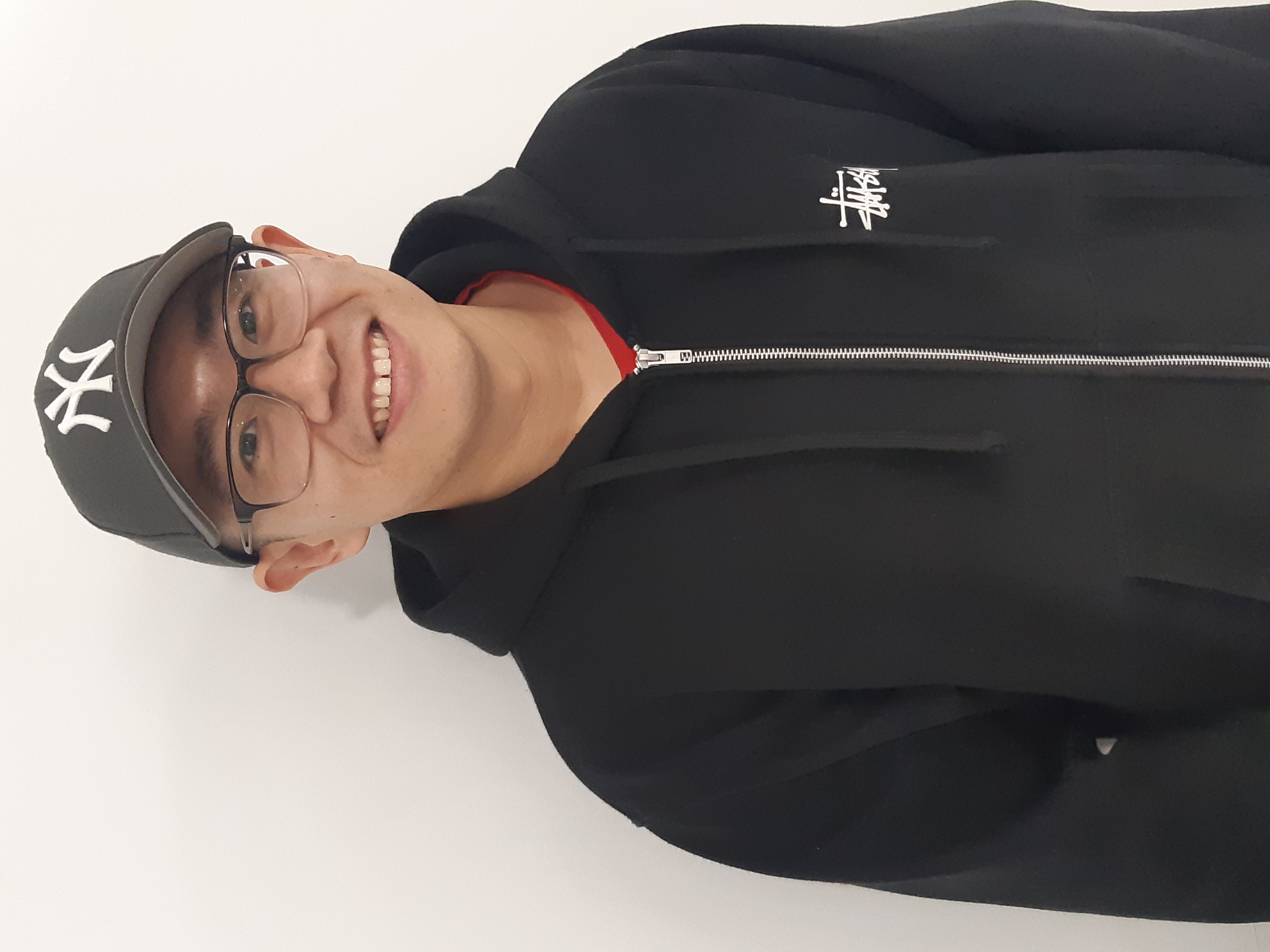
After earning a master’s degree in Newcastle, England, Mike Wu started his career in medical translation in 2014. However, by 2019, he felt the need for a change of pace and decided to pursue a new bioinformatics program at Langara College in 2020. This program fascinated him as it offered a unique combination of biology and computer science, which enabled him to apply his skills to various research problems.
During his second year at Langara, Mike was encouraged by a classmate to apply for a student researcher position with the Applied Research Centre (ARC). He contacted Kelly Sveinson, Director of ARC, and asked if there was any assistance needed in the chemistry lab. This initiative opened more opportunities for Mike. As of December 2022, he is working with Dr. Ido Hatam on building a pangenome for the crop plants Cannabis sativa (cannabis) and Humulus lupulus (hops).
Wu is grateful for being able to apply his current studies in bioinformatics to real-world cases. He has gained valuable hands-on experience analyzing genome sequences using high performance cluster computers.
Wu encourages other students who are interested in gaining similar experiences to reach out and inquire with the department about research projects and where they need help. ARC helps students to network with their classmates and instructors, and gain more relevant experience in their field of study.
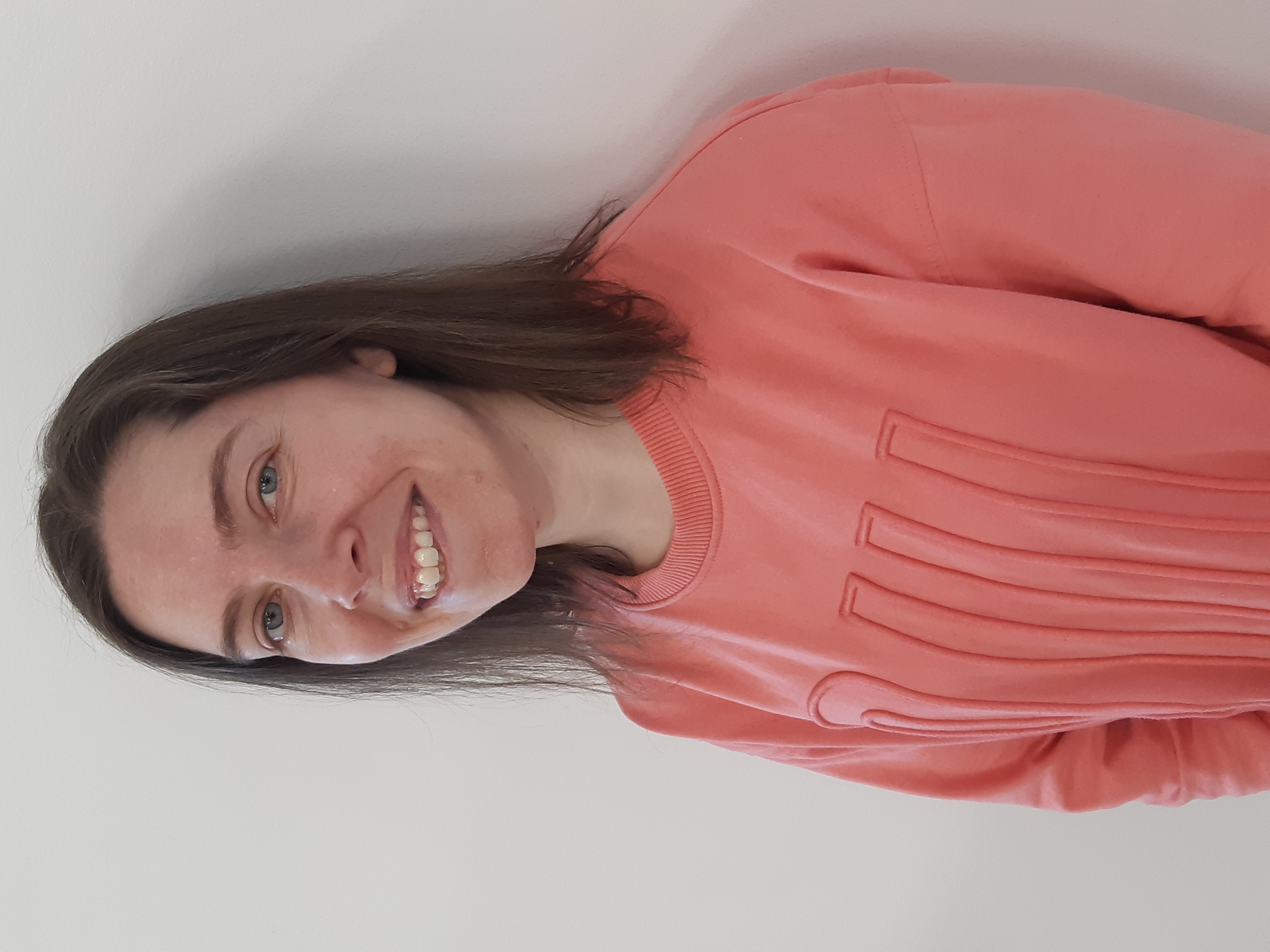 Gokce Alp has a PhD in chemical engineering from Hacettepe University in Turkey.
Gokce Alp has a PhD in chemical engineering from Hacettepe University in Turkey.
When she began her studies in bioinformatics at Langara, she was quick with her discovery of the Applied Research Centre (ARC).
Having previous experience working in a wet lab, she spoke with instructor Dr. Jessica Kalra and has since been working with Dr. Kalra on designing and developing lipid based nanocarriers for drug delivery systems.
Alp says she loves working with ARC and has a passion for research and lab work. “That’s why I didn’t want to stop doing research when I’m also a student. I didn’t want a break from research," she explains.
Alp has plans to combine knowlodge from her doctorate in chemical engineering and her diploma in bioinformatics to continue working in research facilities using data analytics.
She says that if younger students are curious about lab work, they should reach out to the instructors and ask for opportunities. Alp adds that ARC is a great chance for students to build up their CVs and themselves. "They will get to learn how to work with a group and how to do collaborate. If they curious about lab work, just go and talk with instructors and ask for their ideas and if there are any possibilities.”
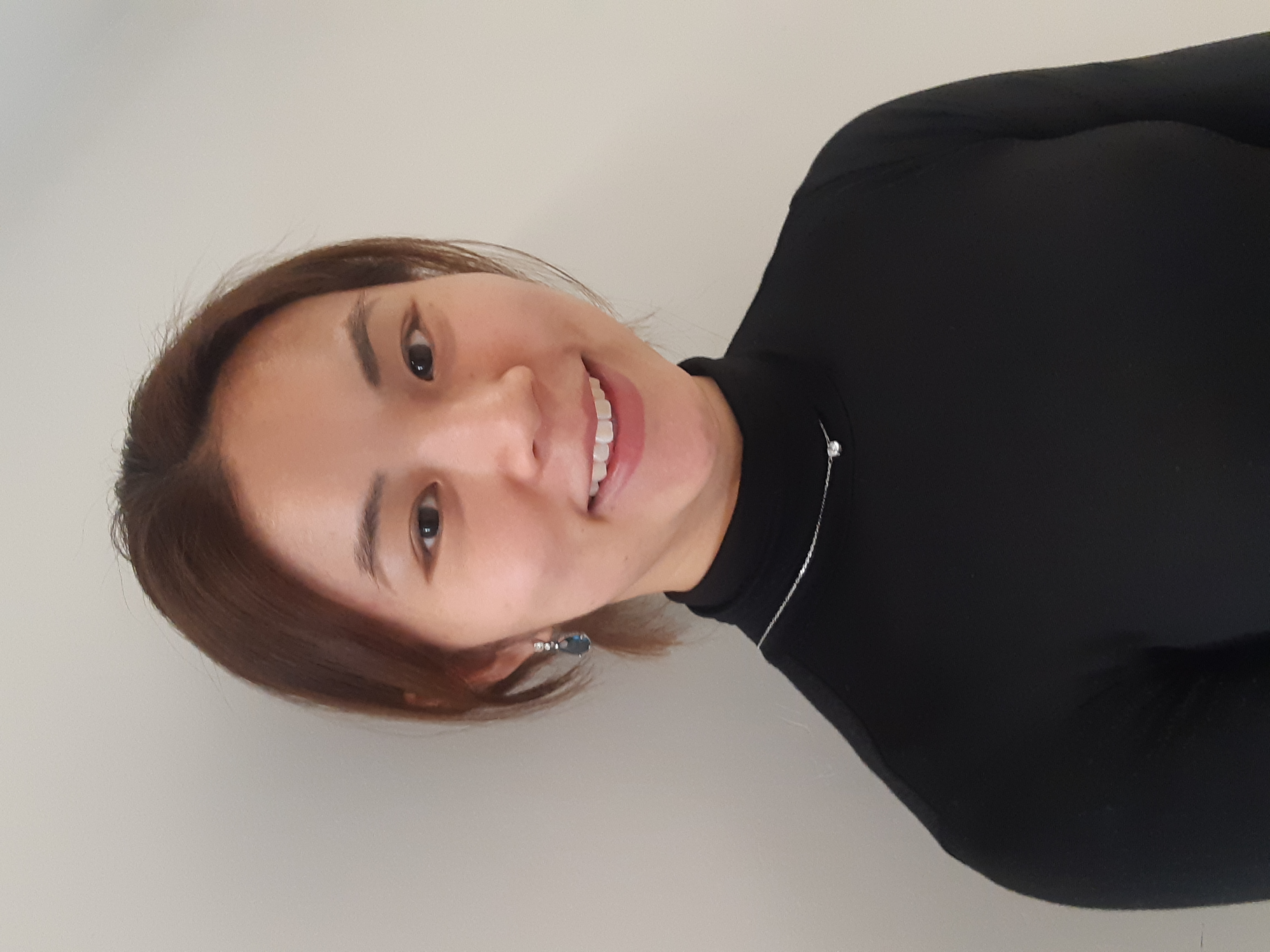
Prior to attending Langara College, Lydia Chau had studied and spent three years working in Hong Kong as a business analyst in the banking industry. Chau felt she was more interested in studying data analytics and enrolled in Langara to study the emerging field. While beginning her studies at Langara, Chau became aware of the Applied Research Centre (ARC). When she saw instructors from the department posting job opportunities, she was quick to apply and was soon selected to work as a student research assistant on a grant entitled “Immigration, Education & Employment Pathways of Urban and Rural International Students in BC: What is Going On?”.
Since Chau is currently studying data analytics, her work with ARC involves collecting data to consolidate with other data tables into documents. From using previous data findings, Chau joined the research team creating documents regarding international students and what their education, career, and immigration paths are.
Chau’s main focus is also on formulating a visualization of the research results from the data she collected – a format of “data visualization." Chau has had a great experience working with ARC, and especially working alongside international students. It can be difficult for others to relate to their situations, but that is where Chau’s work pays off. Chau says, “I think the outcome is more [of] letting others know actually what their reality is.” With Chau’s assistance in the research, the project is paving a pathway to fully understanding academic and migration processes. This development can help the public, government, Langara, or other organizations be able to assist international students with their current needs.
As an Associate of Science student in Health Sciences, Max Besarab was studying biology and chemistry during his second year when biology instructor, Dr.Stephanie Cheung, introduced him to her colleague, Dr. Ji Yong Yang. Dr. Yang is currently conducting research on feral hops growing in British Columbia. After meeting Dr. Yang, Besarab began working with the Applied Research Centre (ARC) in January 2022.
Besarab explains that this Dr. Yang’s research involves discovering promising feral hops growing in British Columbia to support the local hop growers and craft brewers and create a more sustainable and diverse hop market in Canada Besarab’s role in the project is to analyze the chemical properties of the feral hops, such as terpenes and the bittering acids, which determine the flavour and aroma of beer.
Besarab and the hops research team are also developing new techniques to investigate the most efficient and accurate methods for extracting terpene oils from hop cones. He is investigating two methods of extracting terpene oils: solvent extraction and steam distillation. The goal of this study is to discover which method is more efficient and effective in extracting terpene oils from hop plants.
Besarab says, “We use solvent extraction and compare it to the industry's standard that uses steam distillation. Steam distillation is a lengthy process, so solvent extraction is faster, and we're trying to see if it's as efficient or even better.”
Besarab is planning to attend medical school and has found that working with ARC has helped him to develop lab skills and the work ethic that would enhance his application. “I want to contribute to the research, to the team's work, and contribute to ARC's success in any way I can,” says Besarab.
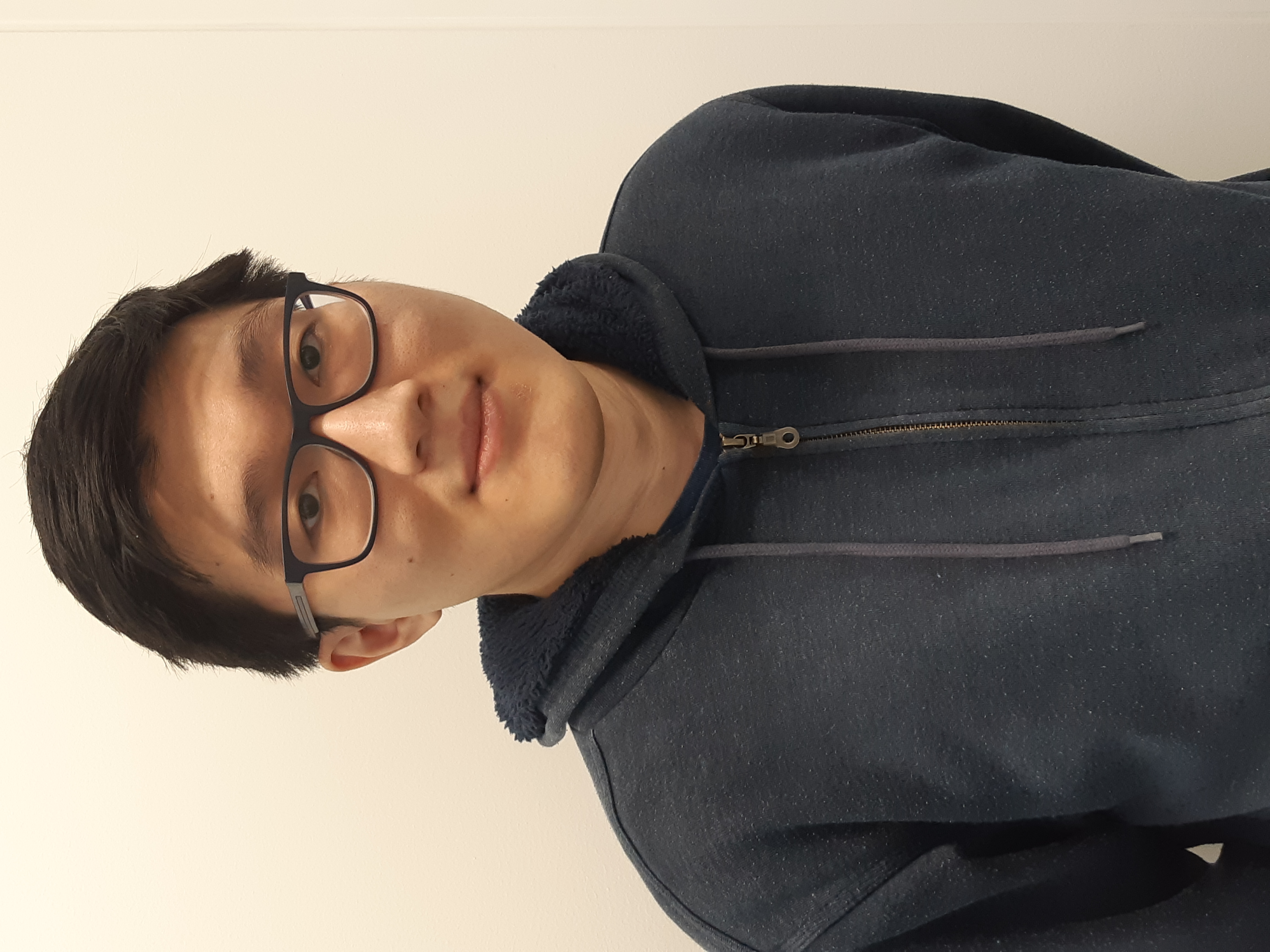 Gareth Tang is a third-year bioinformatics student at Langara who is also working on an eight-month co-op. While taking general sciences at Langara five years ago, Tang transferred into bioinformatics after attending his first dry lab (a lab that requires computer data work) in General Biology 1.
Gareth Tang is a third-year bioinformatics student at Langara who is also working on an eight-month co-op. While taking general sciences at Langara five years ago, Tang transferred into bioinformatics after attending his first dry lab (a lab that requires computer data work) in General Biology 1.
Tang says he got to see DNA in a different way while conducting a “blast search.” “Usually, you would see DNA as part of your genes and the sequence of letters on paper – it’s what makes you, you. But if we see it from a computer's perspective, it’s also another way of storing data, which is how biologists see it.
Tang says data can be stored not only using ones and zeros but also as nucleotide sequences.
The Applied Research Centre struck Tang’s interest when he first attended Applied Research Day in 2019. Tang says, “I got to see all these different faculties that had their individual booths and I was quite amazed at what they had to present. Rather than simply being from science, you could see people that were from business, people from the arts. There was even a 3D printer there.”
That same year, Tang was introduced to work with ARC through instructor, Dr. Prashant Kumar, but his work with ARC began in the fall semester of 2021.
Dr. Kumar needed students for his work on novel antimicrobial compounds of cannabis. The research would test samples of cannabis against bacterial species s to find out the lowest concentration needed to prevent bacteria from growing. Tang says if the research has promise and can show concrete results, there could be development of an antimicrobial product.
For students interested in the Applied Research Centre, Tang says it is important to be involved with your campus. “Do well enough in your studies while also learning about the various events in Langara, such as Applied Research Day. Get to know your professors beyond the classroom, visiting them during office hours, and be appreciative about the chance to study at a post-secondary institution.”
Tang says to keep an open mind when working in research. “It is normal to expect that things may not go the way you're expecting before you start working ... The point of research [is] that we are not really supposed to artificially influence the way or unfairly influence the way that our experiments go. We simply observe, and if things come out differently, we should question ‘why’.”
Tang is thankful for the guidance that he has received from ARC. “I would like to thank Dr. Prashant Kumar, my instructor and supervisor Dr. Ji Yong Yang, Dr. Ido Hatam, and Seetha Kumaran for the opportunities, and also for facilitating an easy transition into this opportunity.” Tang says that working with ARC has helped him decide to further his career in data science.
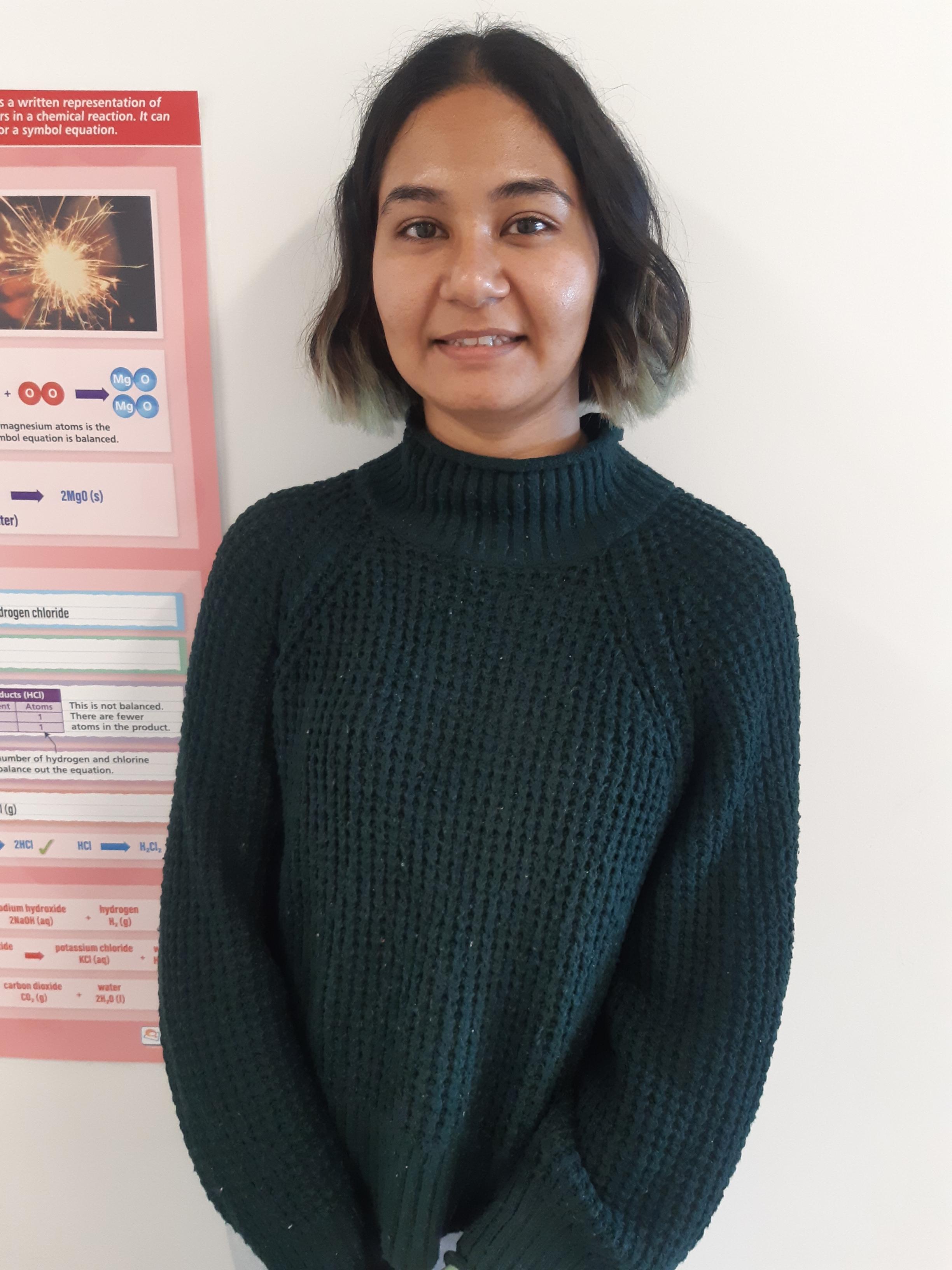 Second-year biology student, Parleen Mand, is studying at Langara to pursue a career in physiotherapy. Through the Student Work Assistance Program (SWAP), Mand heard about the Applied Research Centre (ARC) and wanted to gain experience working inside a research lab.
Second-year biology student, Parleen Mand, is studying at Langara to pursue a career in physiotherapy. Through the Student Work Assistance Program (SWAP), Mand heard about the Applied Research Centre (ARC) and wanted to gain experience working inside a research lab.
Through her work with ARC, Mand has enhanced her academic opportunities and hands-on skills, and is now considering a career in analytical chemistry. Alongside studying organic chemistry, Mand’s work with ARC has offered her a first-hand understanding of how lab-based instruments and the scientific method create the link between biology and chemistry.
Mand sees ARC providing fantastic opportunities for Langara’s community partners. to collaborate with the College and to engage students in meaningful work. With her research experience in cannabis, Mand sees the potential for crossing over to work in the pharmaceutical industry. Mand’s current project offers customers a chance to find cannabis products that match their needs, providing knowledge of their potency. Mand says, “There is a need to understand the effects of any substance before actually putting it into your body.”
 Yukiko Inokuchi graduated with a diploma in health sciences from Langara College in December 2021. She is now a co-op student on a Mitacs internship. Mitacs is a national organization that operates research and training programs in Canada. During her time as a health science student, Inokuchi took additional biology classes to satisfy the program requirements.
Yukiko Inokuchi graduated with a diploma in health sciences from Langara College in December 2021. She is now a co-op student on a Mitacs internship. Mitacs is a national organization that operates research and training programs in Canada. During her time as a health science student, Inokuchi took additional biology classes to satisfy the program requirements.
From one of her biology instructors, she learned about the Langara’s Applied Research Centre (ARC) and its search for outstanding performing students to apply for opportunities to work in the College’s research labs.
Even though she did not feel qualified, she decided to apply and was successful. Inokuchi has been working for the last ten months with Dr. Ji Yong Yang, a biology instructor and an ARC researcher, on a project looking at the commercialization potential of feral hops from British Columbia. Specifically, she is working on identifying if the hundreds of BC feral hops are genetically unique and different to the known commercial varieties. She is using a DNA fingerprinting methodology involving SNPs (single nucleotide polymorphisms) to determine the genetic identities of these feral hops.
Though Inokuchi did not initially have plans to become a researcher, she enjoys working with ARC because it is an opportunity for her to apply what she has previously studied in both chemistry and multi-biology by using a hands-on scientific approach.
She says, “I would say you can learn a lot of things beyond [the] textbook.”
The hops research project has inspired Inokuchi to gain a broader perspective on health sciences – by allowing her to see the process and the actual results through research – than what she would learn from only sitting in a classroom.
The Applied Research Centre has offered Inokuchi an opportunity to study beyond the textbook and she plans to apply what she has learned from her research through ARC to other companies that she may work for in the future.